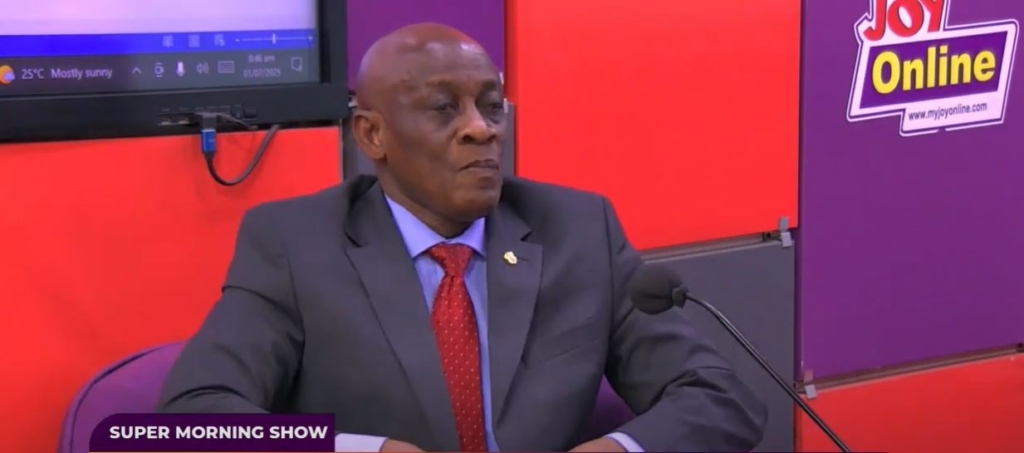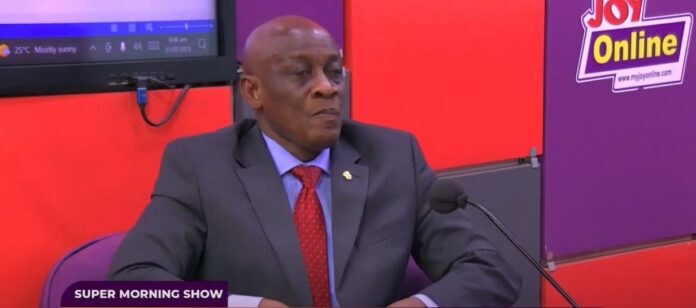
Economic Policy Advisor at the Office of the President, Seth Terkper, has issued a cautionary piece of advice to President Mahama’s administration regarding the financing of its ambitious ‘Big Push’ infrastructure projects.
The former finance minister holds a strong position that the projects must be designed to generate sufficient revenue to repay their own loans if any external facility is acquired to fund the programme.
Speaking today, July 1, on Joy FM’s Super Morning Show, Mr Terkper emphasised the need for a strategic approach to infrastructure development, advocating for projects with a clear commercial viability.
“The portion of ‘Big Push’ which is commercial should aim to recover, you know, the loan from the project,” Mr Terkper stressed.
He cited examples like developing water transportation on the Volta Lake.
“If you are doing barging on the Volta Lake, which we have not realised since Nkrumah… there’s something we can do because if you, instead of all the trucks going on the road, spoil the road and whatever, how about the road to Kumasi or a road from the tip of the lake up north which is cheaper?”
Mr Terkper, who previously served as Finance Minister under President Mahama, highlighted that such projects, while requiring initial government investment in public infrastructure (like charting the Volta Lake for navigation), should primarily involve the private sector for commercial operations.
He drew parallels to existing successful models, such as the Tema Port, where the core port infrastructure is public, but container depots and related services are largely private businesses.
“Does the government have to provide barges? No, there are companies, including Ghanaian, [who can]. Much of transport is structural… so the private sector invests in the barges,” he explained.
READ ALSO : Terkper highlights key recurrent costs draining Ghana’s revenue
He advocated for a model where the government’s role is to provide foundational public goods, akin to an airport runway, while allowing and encouraging the private sector to invest in the commercial aspects that generate revenue.
“Instead of persons in authority investing and then his balance sheet becoming heavy, it defaults, and the government takes over the loan,” Mr Terkper warned against the pitfalls of solely public-funded commercial ventures.
The former minister pointed to past successes during his tenure, such as the Atuabo Gas Processing Plant and expansions at the Tema and Takoradi ports, as examples of “smart borrowing” where projects were designed to be self-financing.
He reiterated that the philosophy is to leverage the private sector to reduce the burden on the national balance sheet.
President Mahama’s ‘Big Push’ initiative, a cornerstone of his current administration, aims for a US$10 billion infrastructure investment plan over several years, focusing on critical areas such as roads, railways, water, sanitation, and housing.
While the government has emphasised timely payments to contractors to avoid project delays, Terkper’s advice underscores a long-standing call for fiscal prudence and sustainable financing models in Ghana’s infrastructure development drive.
DISCLAIMER: The Views, Comments, Opinions, Contributions and Statements made by Readers and Contributors on this platform do not necessarily represent the views or policy of Multimedia Group Limited.
DISCLAIMER: The Views, Comments, Opinions, Contributions and Statements made by Readers and Contributors on this platform do not necessarily represent the views or policy of Multimedia Group Limited.


